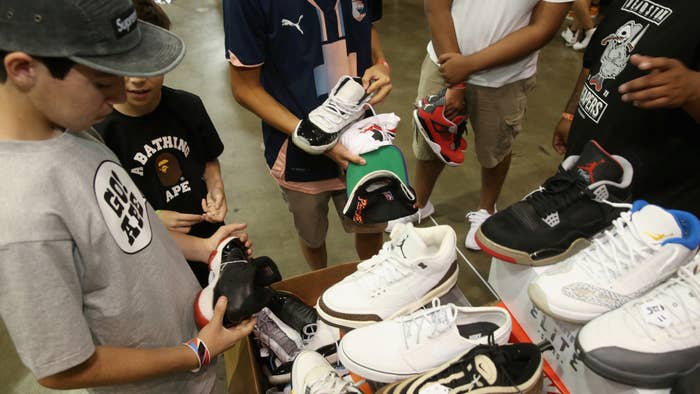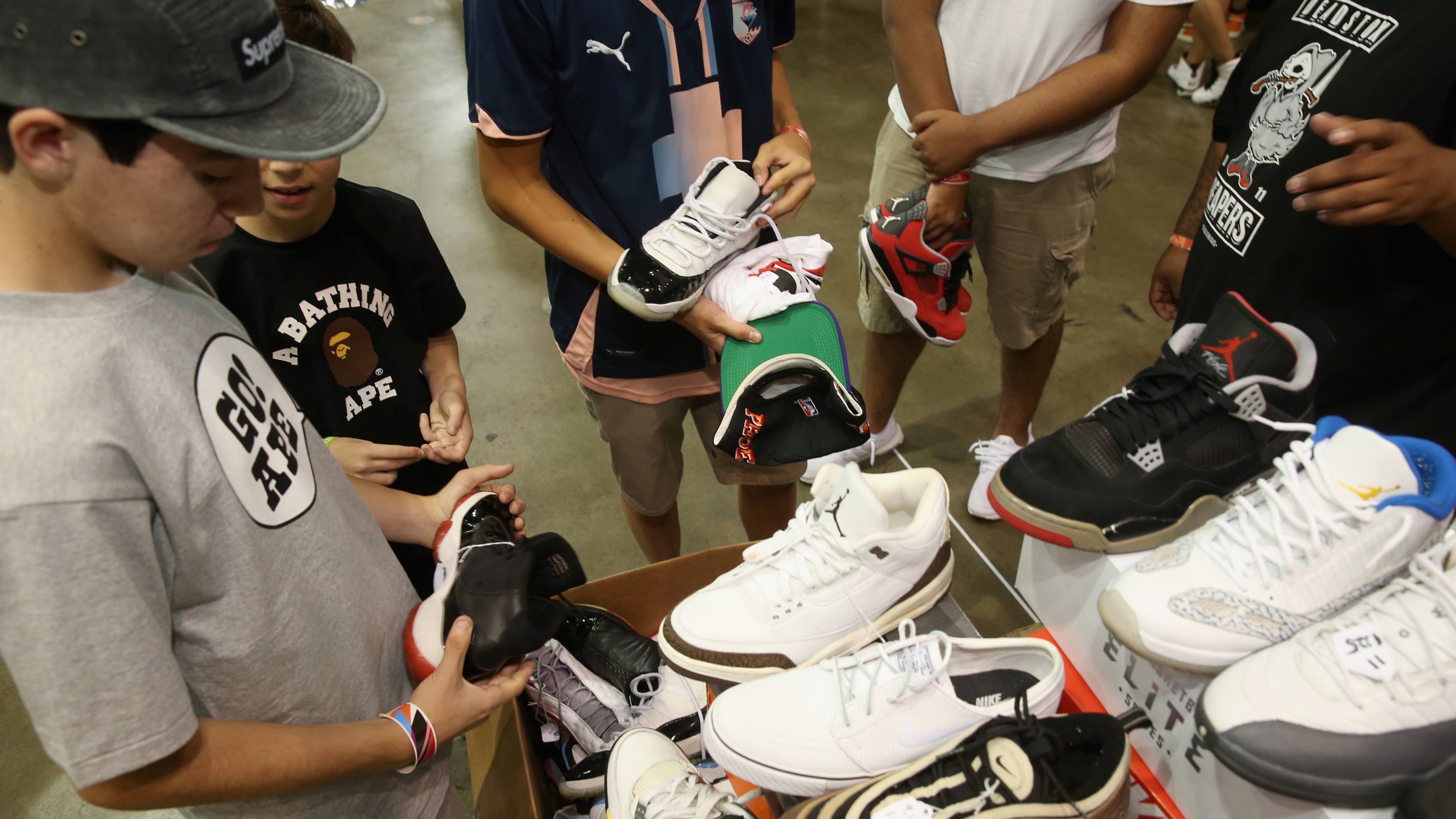
Weeks after viral videos of mystery box sales at Sneaker Con sparked backlash online, the traveling convention has banned their sale at its events outright. The sale of mystery boxes, which entice buyers by offering the prospect of securing a rare and expensive sneaker below its secondary market price, has been criticized as a form of gambling that can dupe unwitting customers.
“Sneaker Con has banned all mystery boxes from being transacted at our events,” a spokesperson tells Complex. “This policy will be effective immediately and enforced at Sneaker Con San Antonio Feb. 4, 2023. We appreciate the feedback from the community and thank everyone for the continued support.”
In response to videos that circulated on social media in mid-January, users condemned Sneaker Con vendor Chase Briner, a man who’s referred to himself on Instagram as the “mystery box king.” According to his Instagram account, Briner is the owner of a sneaker store in Las Vegas called RoyalOne.
Briner did not respond to a request for comment.
Videos from Briner’s social media show convention attendees—many of them children—paying $300 for his mystery boxes, at times pulling sneakers worth less.
The “grand prizes,” the best possible outcome for these boxes, are pairs like the Concepts x Nike SB Dunk Low “Orange Lobster” and Travis Scott x Air Jordan 1 Low “Black Phantom,” which go for around $500 and $725 on resale markets, respectively. But most videos show more lackluster pairs, like the unreleased “True Blue” Air Jordan 1 or these camo Dunks that are worth significantly less than the boxes’ $300 asking price. Some of the boxes also come with cash to pad their value.
Commenters flamed Briner for the mystery boxes, suggesting that he should establish a floor value of the boxes to set expectations around the least valuable of them.
In a response video on YouTube, posted on Jan. 11, Briner defended his boxes and argued the perception around them was skewed.
“I know we’ve been on the backend of a lot people’s TikToks and people doing reaction videos and whatever,” Briner said. “But people don’t like showing the good boxes.”
Although Briner’s own social media is filled with videos of mystery box sales showing buyers getting low-value items, he complained that people weren’t sharing the videos of his buyers getting high-value shoes from the mystery boxes.
“It’s a gamble,” Briner said in the video. “Every box can’t be a hit.”

